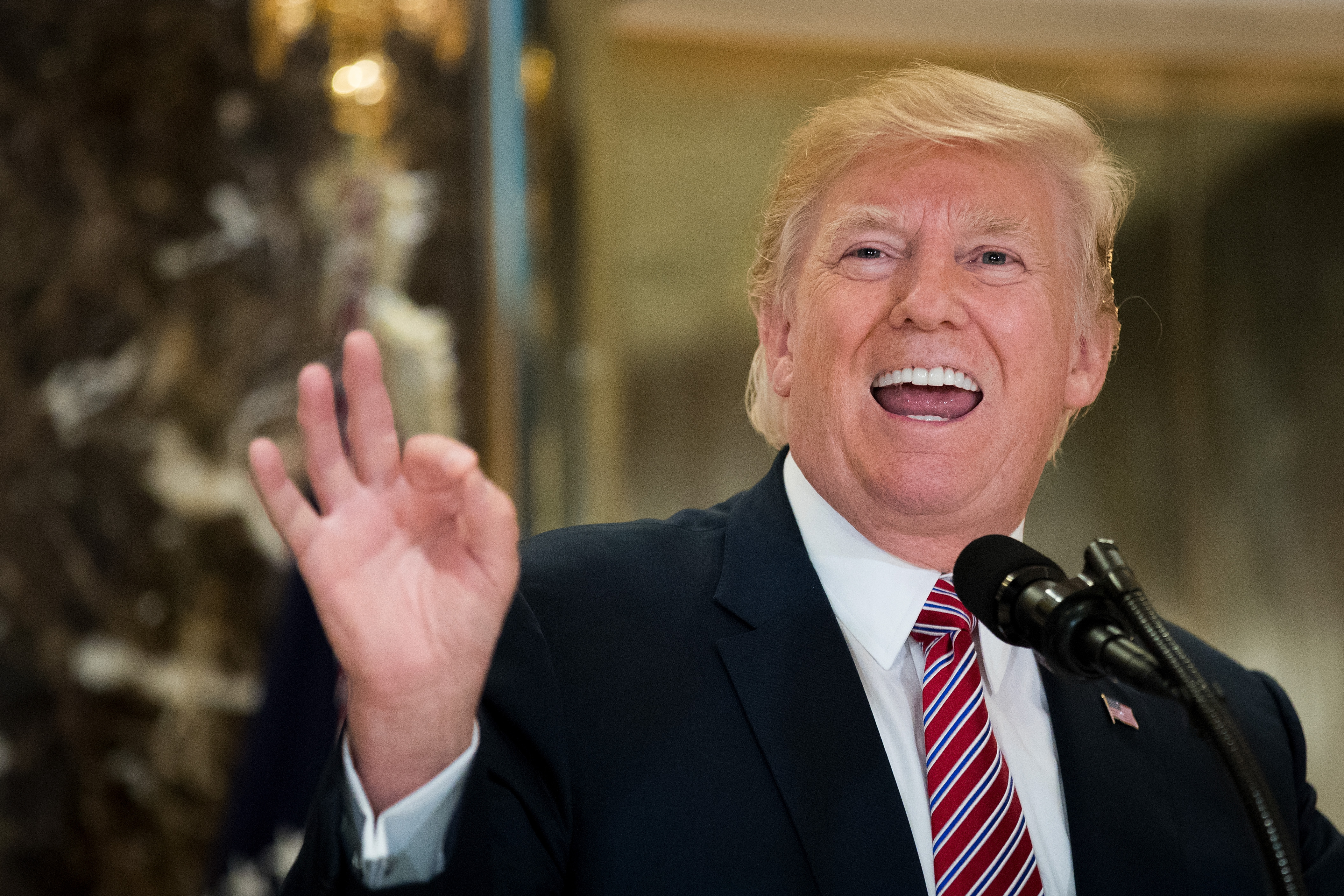Why America's CEOs turned on Trump
"It took the worst of Trump to bring out the best in corporate America."

A free daily email with the biggest news stories of the day – and the best features from TheWeek.com
You are now subscribed
Your newsletter sign-up was successful
The smartest insight and analysis, from all perspectives, rounded up from around the web:
"The business president has lost the business community," said Alexia Fernández Campbell at Vox. Two of President Trump's business advisory councils disbanded last week in protest over the president's response to white-supremacist violence in Charlottesville, Virginia. The executive exodus began slowly at first, with Merck CEO Kenneth Frazier, one of the few African-Americans leading a Fortune 500 company. But an explosive press conference in which Trump doubled down on blaming "both sides" for the violence left executives rethinking their long-standing resistance to wading into politics. After a hastily organized series of conference calls, business leaders decided the public pressure was too much. "They could no longer work with the president."
"It took the worst of Trump to bring out the best in corporate America," said Steven Pearlstein at The Washington Post. Most business leaders didn't support the president during the campaign, but they were eager to get behind his pro-business platform of tax cuts and deregulation after the inauguration. That cost-benefit calculus has now changed, and we should applaud their courageous stand. For decades, the mantra of the nation's top CEOs has been to maximize profits, no matter the social cost. But "Trump's behavior has been so outrageous" that even if he were able to deliver on his business-friendly agenda, "customers and employees are no longer willing to accept the moral compromises that go along with it." One day, we may look back on last week "as a turning point in the evolution of American capitalism."
The Week
Escape your echo chamber. Get the facts behind the news, plus analysis from multiple perspectives.

Sign up for The Week's Free Newsletters
From our morning news briefing to a weekly Good News Newsletter, get the best of The Week delivered directly to your inbox.
From our morning news briefing to a weekly Good News Newsletter, get the best of The Week delivered directly to your inbox.
The idea that these CEOs have become the "moral pillars of America" is absurd, said David Dayen at New Republic. "Mere words of opposition do not amount to a profile in courage." Their firms will still lobby the White House; they just won't do it when the cameras are rolling. "All their lobbying and favor trading has gone underground." And big business still has plenty of reasons to love Trump, said Annie Lowrey at The Atlantic. The White House has gutted hundreds of regulations and installed dozens of former lobbyists in federal agencies governing the industries they used to work for. "Individual executives might repudiate Trump, but many of their shareholders are still cheering" his administration.
But last week's exodus shows that CEOs believe the president himself is increasingly "useless to them," said Joe Nocera at Bloomberg. "He is never going to get anything through Congress, which now shrugs when he demands action." Corporate tax cuts look increasingly unlikely after the ObamaCare-repeal debacle, as does an infrastructure plan. No CEO wants to be a target of one of Trump's "bullying tweets," but Jeff Sessions has proven that the angry, 140-character messages emanating from the White House "have no consequences if you ignore them." At the end of the day, I'm sure "none of the departing CEOs likely believes Trump is a white supremacist or Nazi sympathizer," said Holman Jenkins at The Wall Street Journal. But "there is no point in taking brickbats for a president who does not deliver."
A free daily email with the biggest news stories of the day – and the best features from TheWeek.com
-
 Quiz of The Week: 14 – 20 February
Quiz of The Week: 14 – 20 FebruaryQuiz Have you been paying attention to The Week’s news?
-
 The Week Unwrapped: Do the Freemasons have too much sway in the police force?
The Week Unwrapped: Do the Freemasons have too much sway in the police force?Podcast Plus, what does the growing popularity of prediction markets mean for the future? And why are UK film and TV workers struggling?
-
 Properties of the week: pretty thatched cottages
Properties of the week: pretty thatched cottagesThe Week Recommends Featuring homes in West Sussex, Dorset and Suffolk
-
 The pros and cons of noncompete agreements
The pros and cons of noncompete agreementsThe Explainer The FTC wants to ban companies from binding their employees with noncompete agreements. Who would this benefit, and who would it hurt?
-
 What experts are saying about the economy's surprise contraction
What experts are saying about the economy's surprise contractionThe Explainer The sharpest opinions on the debate from around the web
-
 The death of cities was greatly exaggerated
The death of cities was greatly exaggeratedThe Explainer Why the pandemic predictions about urban flight were wrong
-
 The housing crisis is here
The housing crisis is hereThe Explainer As the pandemic takes its toll, renters face eviction even as buyers are bidding higher
-
 How to be an ally to marginalized coworkers
How to be an ally to marginalized coworkersThe Explainer Show up for your colleagues by showing that you see them and their struggles
-
 What the stock market knows
What the stock market knowsThe Explainer Publicly traded companies are going to wallop small businesses
-
 Can the government save small businesses?
Can the government save small businesses?The Explainer Many are fighting for a fair share of the coronavirus rescue package
-
 How the oil crash could turn into a much bigger economic shock
How the oil crash could turn into a much bigger economic shockThe Explainer This could be a huge problem for the entire economy